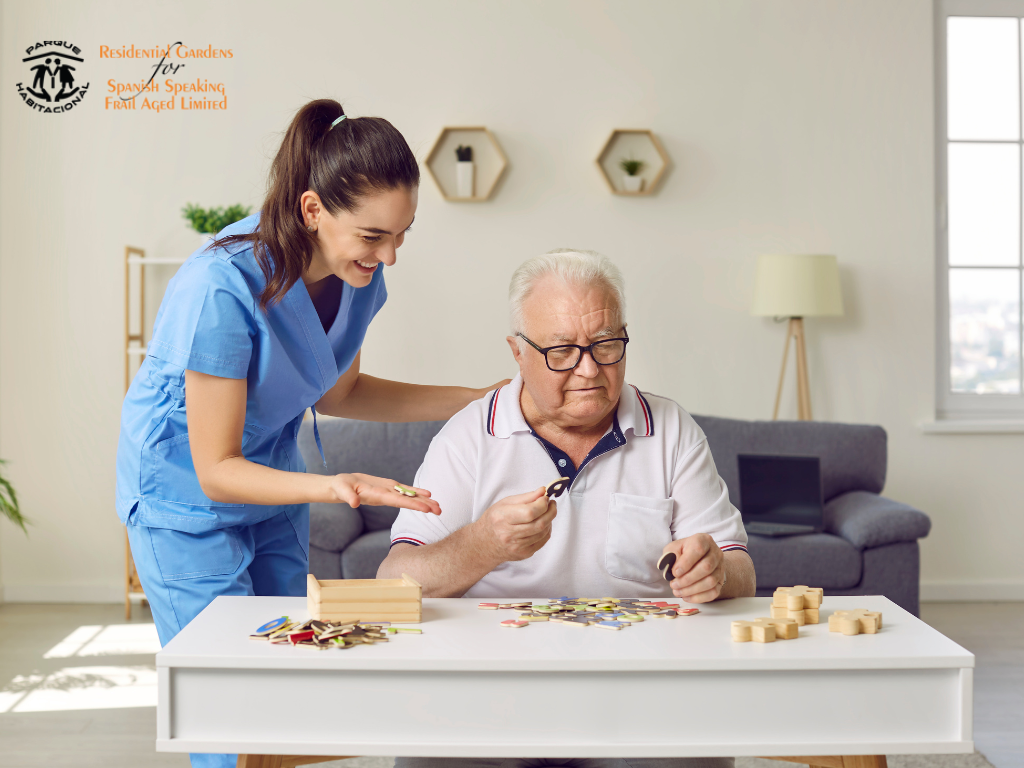Quality of life in the context of aged care encompasses various aspects that collectively ensure the well-being, comfort, and satisfaction of elderly residents. It goes beyond basic care to include emotional, social, physical, and mental health aspects. Quality of life for elderly residents means living in a respectful, dignified environment where their individual preferences and needs are met, where they have opportunities for social interaction, and where they receive the support needed to engage in activities that bring them joy and fulfillment.
The Role of Aged Care Facilities in Enhancing Quality of Life
Aged care facilities play a crucial role in enhancing the quality of life of their residents. These facilities are designed to provide not just medical and personal care but also a supportive community environment. They offer structured programs and activities that cater to the physical, social, and emotional needs of the elderly. By fostering a sense of community and belonging, providing opportunities for engagement and activity, and ensuring personal choice and autonomy, these facilities contribute significantly to the overall well-being of their residents.
Daily Life in an Aged Care Facility

Routine and Structure
The daily life in a residential aged care facility is structured to provide a balance of activities and rest. A typical day may include set times for meals, exercise, social activities, and personal care. This routine helps residents maintain a sense of normalcy and stability. Facilities often provide a variety of scheduled events and activities to cater to the diverse interests of residents, ensuring that each day offers opportunities for engagement and enjoyment.
Personal Care and Assistance
Residents receive personalized care and assistance tailored to their individual needs. This can range from basic help with daily tasks such as bathing, dressing, and eating to more comprehensive care for those with significant health challenges. The level of assistance is adjusted as a resident’s needs change, ensuring they receive the right amount of support while also promoting independence where possible.
Accommodation and Living Spaces
Accommodations in aged care homes are designed to provide comfort, safety, and a sense of personal space. Rooms may vary from private to shared configurations, often equipped with essential furnishings and the option for residents to personalize their space with personal belongings. Common areas such as lounges, gardens, and dining rooms are also integral parts of the facility, designed to encourage social interaction and community living.
Nutrition and Dining Experience
Meal Planning and Dietary Management
Nutritional needs are a top priority in aged care facilities, with meals planned and prepared by professional staff to ensure a balanced diet. Menus are often designed to cater to a range of dietary requirements, preferences, and cultural backgrounds, ensuring that all residents have access to nutritious, enjoyable meals. Dietitians may be involved in meal planning, especially for residents with specific health conditions requiring dietary modifications.
Dining Atmosphere and Social Interaction
Mealtimes are not only about nutrition but also provide vital opportunities for social interaction. Dining areas are typically designed to be welcoming and comfortable spaces where residents can enjoy meals together, fostering a sense of community. Regular themed meals or special event dinners can add variety and excitement to the dining experience, encouraging residents to engage with each other and form meaningful connections.
Activities and Engagement for Residents

Recreational Activities and Programs
Recreational activities in residential aged care facilities play a vital role in keeping residents engaged and active. These programs are designed to cater to a wide range of interests and abilities, ensuring that all residents have opportunities to participate. Common activities include arts and crafts, music and dance sessions, gardening clubs, book clubs, and games like bingo or chess. These activities not only provide entertainment but also stimulate cognitive functions and encourage creativity and self-expression. Many facilities also organize special events like concerts, guest speakers, and local outings, adding variety and excitement to the residents’ daily lives.
Cultural and Spiritual Enrichment
Acknowledging and respecting the cultural, spiritual, and religious needs of residents is an important aspect of life in aged care facilities. To cater to these needs, facilities often organize activities such as religious services, cultural celebrations, and spiritual workshops. These events allow residents to practice their faith and participate in cultural rituals, fostering a sense of belonging and identity. Spiritual and cultural enrichment activities also provide comfort, solace, and a way for residents to connect with their heritage and traditions.
Health, Wellness, and Fitness Programs
Physical Health and Exercise
Maintaining physical health is a key focus in aged care facilities, with tailored fitness programs designed to suit the varying abilities of residents. These might include gentle exercises like stretching, yoga, tai chi, or light aerobic workouts. Some facilities also offer physiotherapy and rehabilitation programs to assist residents in recovering from injuries or managing chronic conditions. Regular physical activity helps improve mobility, balance, and overall physical health, contributing significantly to the residents’ quality of life.
Mental Health Support
Support for mental and emotional well-being is equally important. Many facilities provide initiatives such as counseling services, support groups, and programs focused on mental health, like memory care therapies for residents with dementia or Alzheimer’s. Activities that promote mental stimulation, such as puzzles, memory games, and educational classes, are also common. These programs aim to support cognitive health, provide emotional support, and enhance the overall mental well-being of residents.
Social Connections and Community Building
Fostering a Sense of Community
Building a strong community within the facility is essential for the emotional well-being of residents. This is achieved through various social activities that encourage residents to interact and form relationships. Common areas in the facility are designed to be welcoming spaces where residents can gather, chat, and enjoy each other’s company. Group activities and communal events also play a crucial role in fostering a sense of community and belonging.
Family Involvement and Visitation Policies
Maintaining connections with family and friends is vital for residents’ emotional health. Aged care facilities typically have policies and facilities in place to encourage family involvement, such as flexible visiting hours, guest accommodations, and the organization of family events. Many facilities also facilitate digital communication through video calls and social media, helping residents stay connected with loved ones who are unable to visit in person. These policies ensure that residents maintain strong ties with their families and friends, which is crucial for their emotional and mental well-being.
Resident Autonomy and Independence
Empowering Residents in Decision-Making
Empowering residents in decision-making is a crucial aspect of maintaining their dignity and autonomy in aged care settings. Residents are encouraged to participate actively in choices regarding their care plans, daily routines, and activities. This involvement ensures that their preferences and opinions are respected, providing them with a sense of control over their lives. Care plans are often developed collaboratively, with staff working closely with residents to identify their needs and preferences, ensuring that each individual’s voice is heard and valued.
Adapting Care to Individual Needs
Personalizing care is essential in respecting the independence and unique preferences of each resident. This approach involves tailoring care and support services to meet the specific needs and desires of each individual. It might include adjusting meal times, providing choices in daily activities, or accommodating personal routines. Personalized care plans are regularly reviewed and updated to reflect any changes in the resident’s needs or preferences, ensuring that the care provided remains relevant and effective.
Technology and Innovation in Enhancing Quality of Life
Use of Technology in Aged Care
The integration of modern technologies in aged care facilities has significantly enhanced the quality of life for residents. Technologies used include digital communication tools to keep residents connected with their families, entertainment systems like smart TVs and tablets for leisure, and health monitoring devices that track vital signs and alert staff to potential health issues. These technologies not only improve the standard of care but also provide residents with greater independence and engagement in their daily lives.
Innovations Improving Resident Experience
Emerging trends and innovations in aged care continue to contribute to improving the resident experience. This includes advancements in assistive technologies, such as robotic aids and smart home systems, which increase autonomy for residents with mobility or cognitive challenges. Virtual reality experiences, offering cognitive stimulation and entertainment, and social robots providing companionship and interaction, are also part of the innovative approaches enhancing life in aged care facilities.
Conclusion
Looking ahead, the future of quality of life in aged care holds promising developments. With continuous advancements in technology and healthcare, coupled with a deeper understanding of elderly needs, aged care facilities are poised to offer even more enriching and fulfilling living experiences. Embracing change and innovation will be key to evolving and enhancing the quality of life for elderly residents in these settings.



